Publications
-
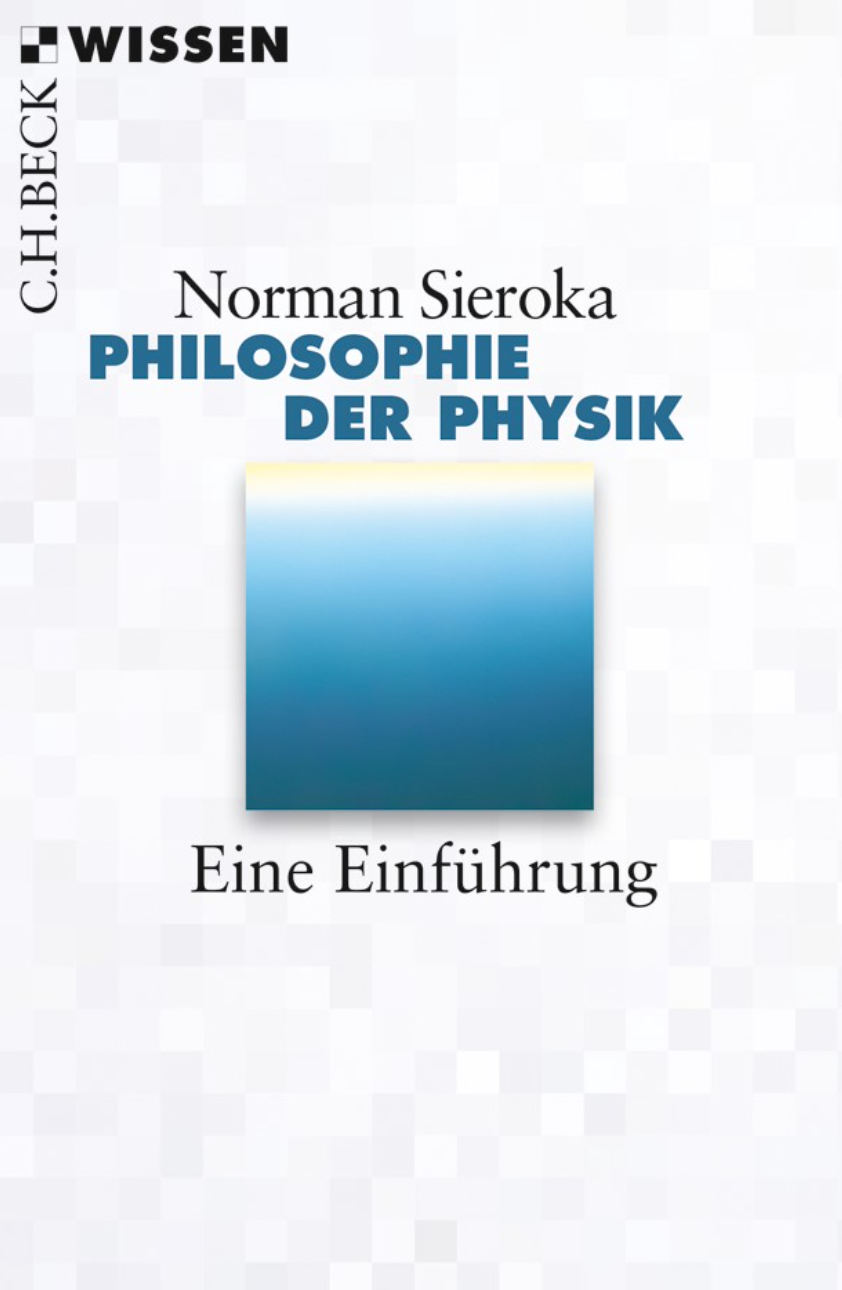 Philosophie der Physik. Eine Einführung
Philosophie der Physik. Eine EinführungThis volume offers a systematic and generally understandable introduction to philosophical questions in physics and its historical development. It begins with a presentation of important stages in the history of physics in antiquity, the early modern period and the past two centuries, and uses them to illustrate central epistemological features of physics. It discusses typical explanatory strategies, the role of experiments and predictions, the procedure for forming concepts and theories and the importance of mathematics.
-
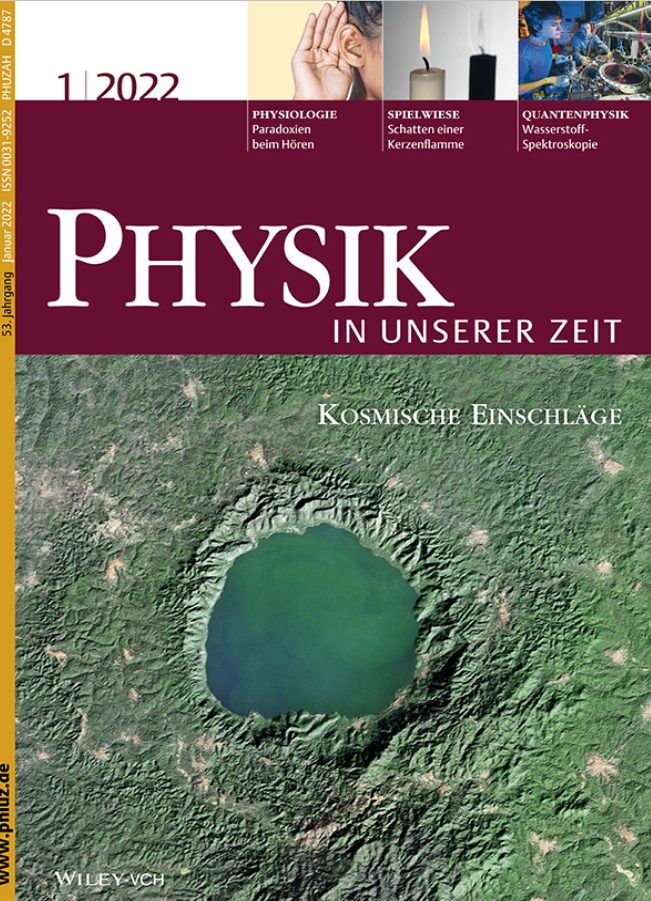 Paradoxien beim Hören
Paradoxien beim HörenDealing with auditory oddities and ambiguities is not only entertaining, it is also an important driver for basic auditory research. The same acoustic stimulus can actually be perceived in different ways. We not only hear “with our ears”, but various other physical, physiological and cultural factors also play an important role. This directly gives rise to broader philosophical questions, for example on perception – and the enduring appeal of pieces of music is also based in many places on such ambiguities [13].
-
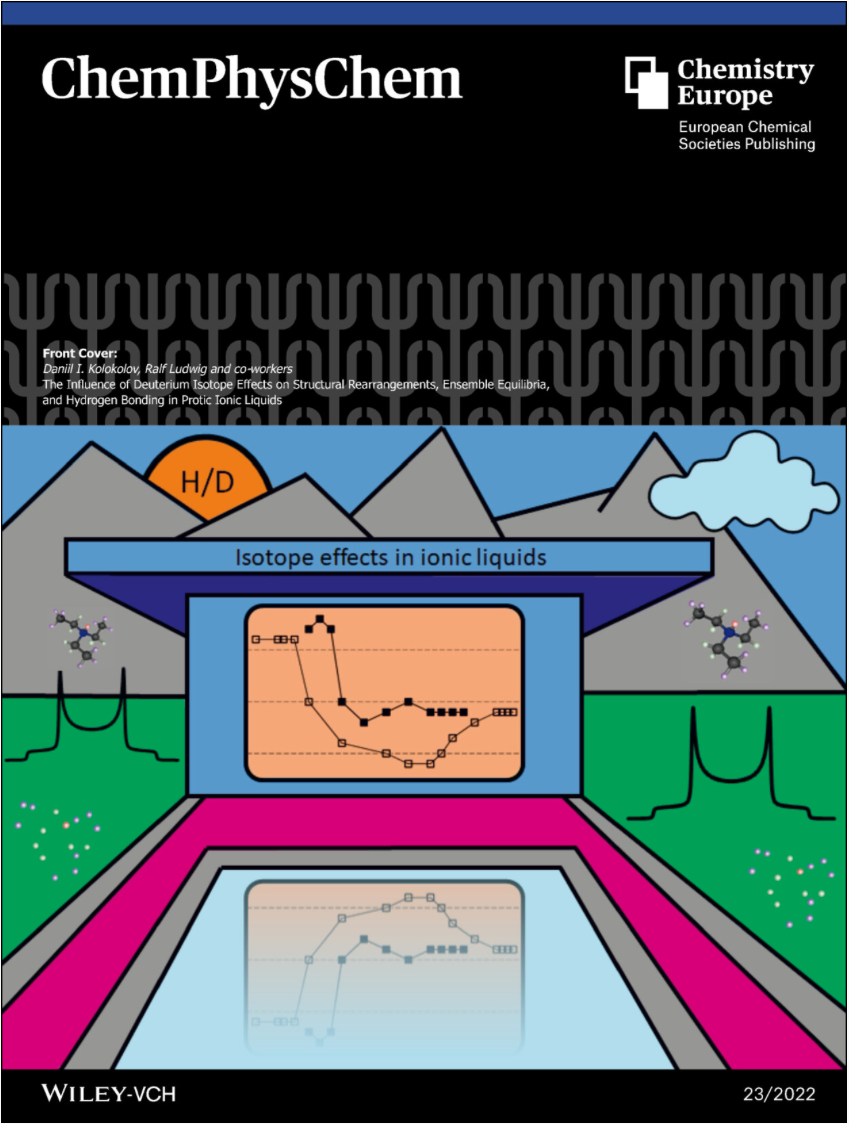 Can a Finite Chain of Hydrogen Cyanide Molecules Model a Crystal?
Can a Finite Chain of Hydrogen Cyanide Molecules Model a Crystal?When calculating structural or spectroscopic properties of molecular crystals, the question arises whether it is sufficient to simulate only a single molecule or a small molecular cluster or whether the simulation of the entire crystal is indispensable. In this work we juxtapose calculations on the high-pressure structural properties of the (periodic) HCN crystal and chains of HCN molecules of finite length. We find that, in most cases, the behavior of the crystal can be reproduced by computational methods simulating only around 15 molecules. The pressure-induced lengthening of the C−H bond in HCN found in calculations on both the periodic and finite material are explained in terms of orbital interaction. Our results pave the way for a more thorough understanding of high-pressure structural properties of materials and give incentives for the design of materials that expand under pressure. In addition, they shed light on the complementarity between calculations on periodic materials and systems of finite size.
-
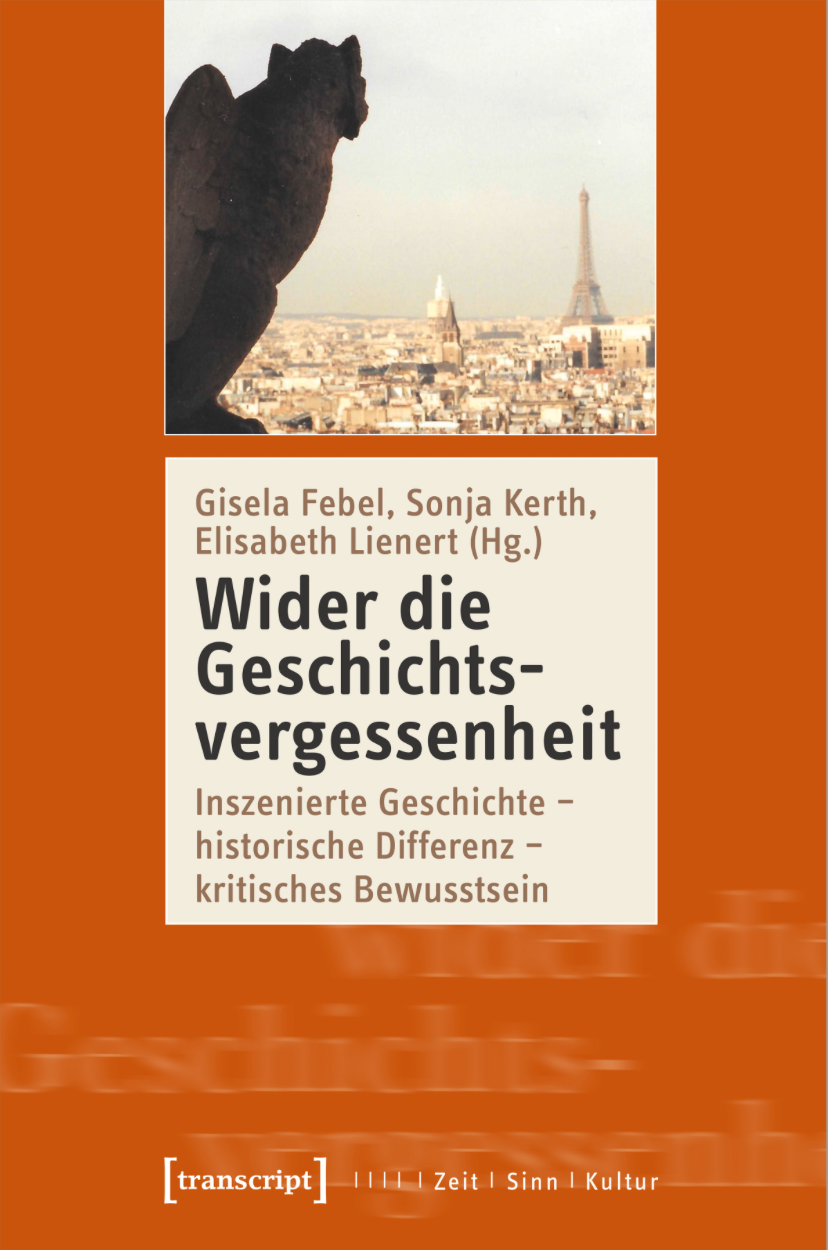 Schichten von Geschichte in aktueller Nibelungenrezeption
Schichten von Geschichte in aktueller Nibelungenrezeption
-
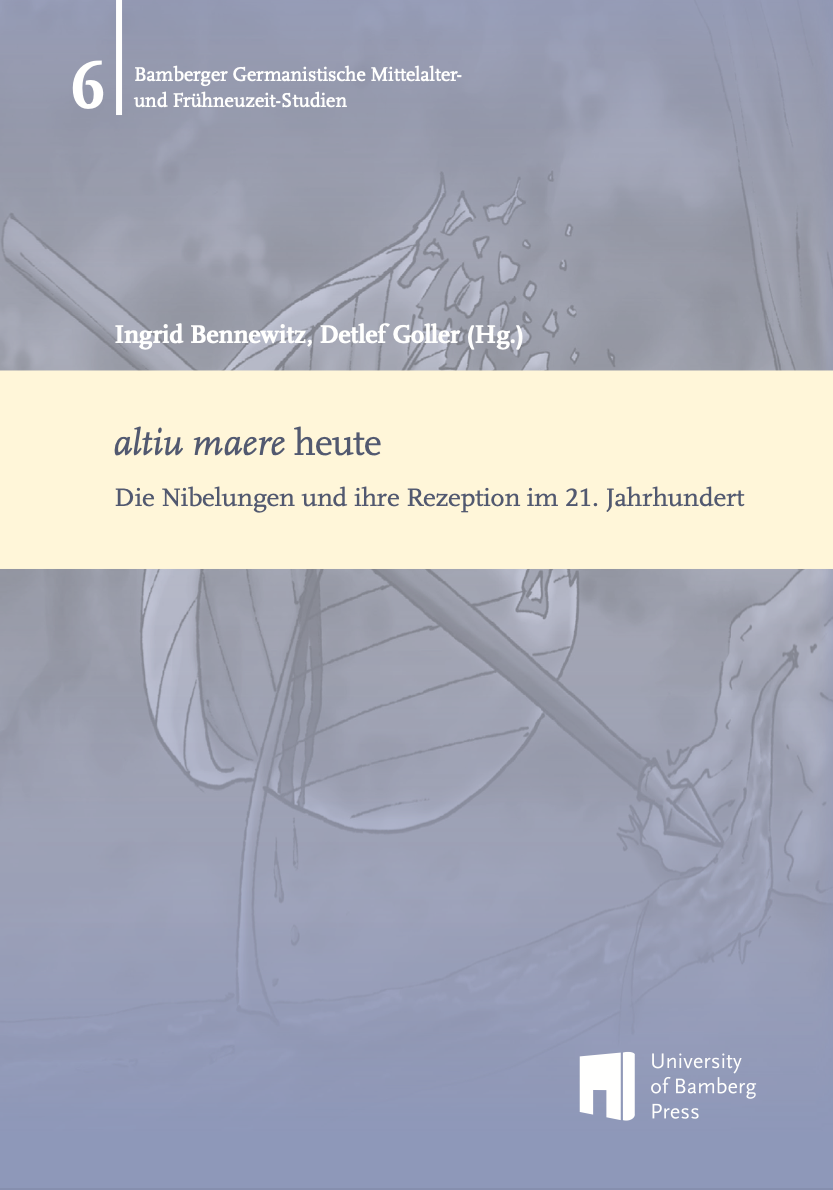 Kriemhild im 21. Jahrhundert. Variationen über eine widersprüchliche Figur
Kriemhild im 21. Jahrhundert. Variationen über eine widersprüchliche Figur
-
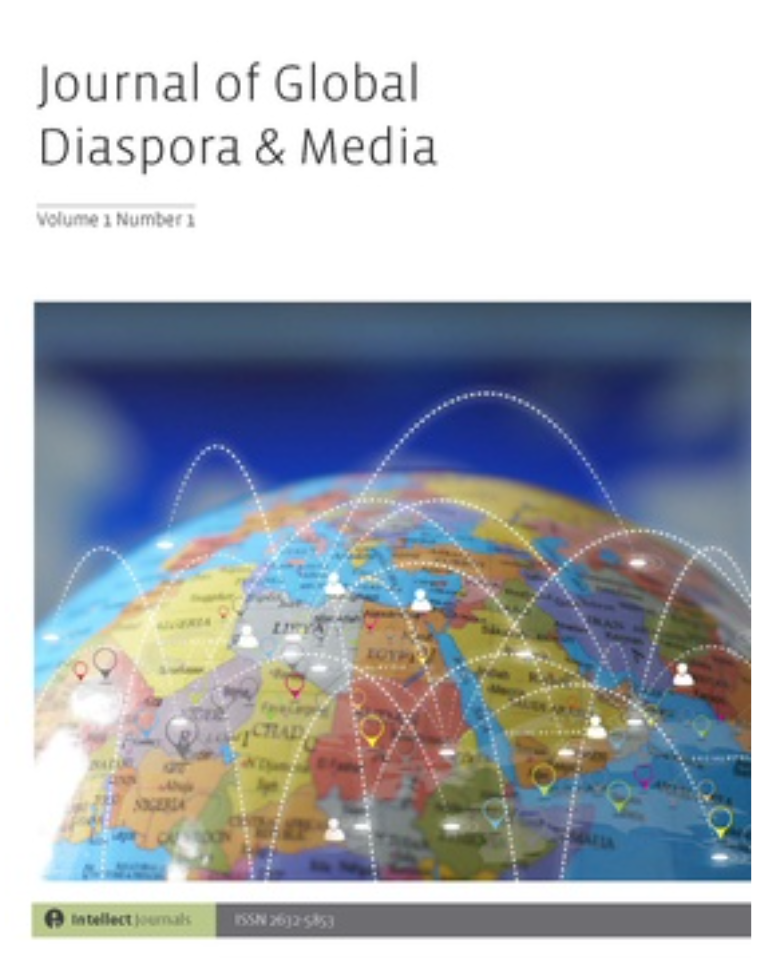 How to Shape Black Diasporic Identity in France by Reading (About) Literature
How to Shape Black Diasporic Identity in France by Reading (About) LiteratureThis article gives an overview of francophone African diasporic websites such as Africultures.com, africavivre.com and other digital magazines, networks and blogs that are present on different platforms. Taking recent novels, texts of liter- ary criticism, reviews and comments as examples, I analyse in what way they share in discourse about diasporic and migratory identity positions of Afropéens (‘Afropeans’) (and differ therein from other readings of the same novels). Methodologically, I draw on Stephen Greenblatt’s concepts of self-fashioning and circulation of social energy as well as on Pierre Bourdieu’s notion of the produc- tion of social capital. With respect to socially preformed discursive formation of Black people as an ostensibly homogeneous minority in the twenty-first century France, I refer to Pap Ndiaye’s ground-breaking study La condition noire from 2009 which closely analyses the complex situation of the Black migrant and post- migrant population. I focus on two narrative texts which are widely perceived both in France and on an international level: First, the autobiographically inspired novel Le Ventre de l’Atlantique (The Belly of the Atlantic) by Fatou Diome and second, Marie Ndiaye’s narrative triptych Trois femmes puissantes (Three Strong Women). Studying remarks and comments of literary criticism concern- ing these texts on francophone African diasporic websites, I raise the following questions: What relevance do these narrated characters (still) have today? To what extent do they shape the discourse of Black migrants in France? What kind of interpretation of the colonial history and context do they offer? And which emancipatory moments and decolonial strategies create a new, proper symbolic capital and, thus, add to the Imagined Community of ‘Noirs en France’ (‘Black people in France’)?
-
 Geschichtsdenken in historischen Romanen über die Vormoderne
Geschichtsdenken in historischen Romanen über die VormoderneIn the face of growing populism and right-wing radicalism, the fight against historical forgetfulness in thought and action is once again highly topical. At first glance, however, historical forgetfulness – at least in relation to the pre-modern era – hardly seems to exist: The Middle Ages, Renaissance and early modern period are experiencing a boom in novels, dramas and popular media. But here in particular, there is an urgent need for an active response to simplifications, mythifications and falsifications. The contributors to this volume show that it is essential for a critical consciousness to be aware of historical difference and media filters and to reflect on their effects. In the face of growing populism and right-wing radicalism, the fight against historical forgetfulness in thought and action is once again highly topical. At first glance, however, historical forgetfulness – at least in relation to the pre-modern era – hardly seems to exist: The Middle Ages, Renaissance and early modern period are experiencing a boom in novels, dramas and popular media. But here in particular, there is an urgent need for an active response to simplifications, mythifications and falsifications. The contributors to this volume show that it is essential for a critical consciousness to recognize historical difference and media filters and to reflect on their effects.
-
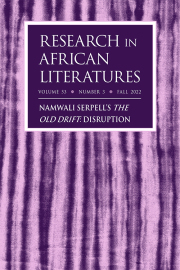 Introduction. Namwali Serpell’s The Old Drift: Disruption
Introduction. Namwali Serpell’s The Old Drift: Disruption
-
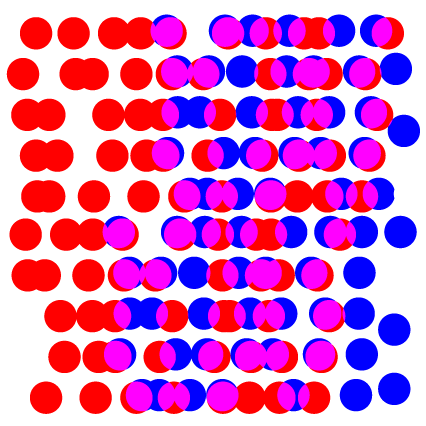 Natalja Gorbanewskaja. Graphic Novel
Natalja Gorbanewskaja. Graphic Novel“She was a poet as great as Joseph Brodsky and a human rights activist as fearless as Andrei Sakharov. Unlike Brodsky, however, she did not receive the Nobel Prize for Literature, and unlike Sakharov, she did not receive the Nobel Peace Prize. However, her name is associated with a unique event in the Soviet Union: On August 25, 1968, she and seven other young people came to Red Square to demonstrate openly against the regime – and against the suppression of the Prague Spring by tanks from the Soviet Union and other Warsaw Pact countries.”
-
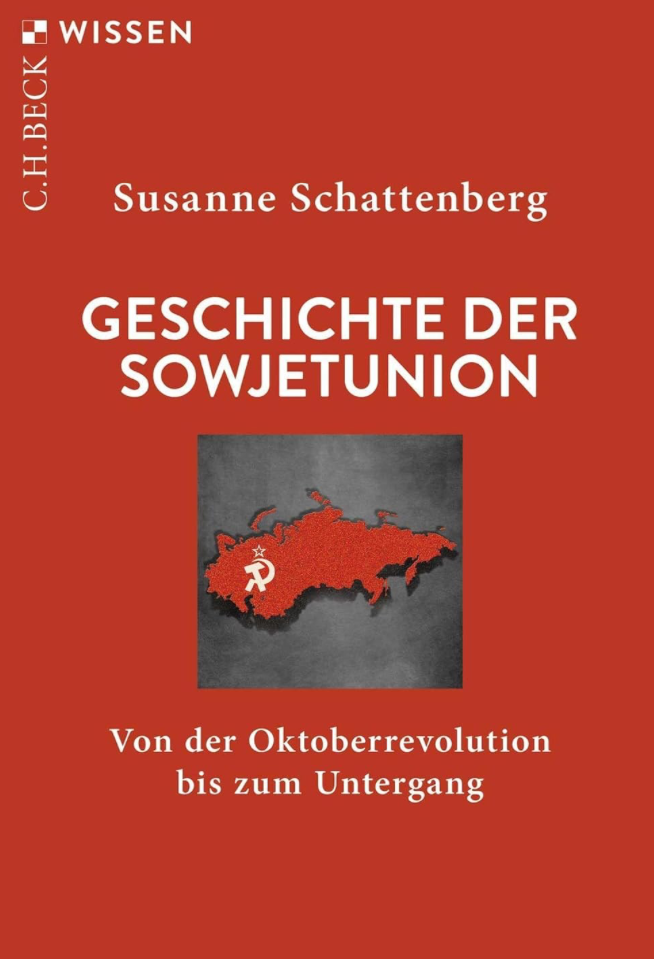 Geschichte der Sowjetunion. Von der Oktoberrevolution bis zum Untergang
Geschichte der Sowjetunion. Von der Oktoberrevolution bis zum UntergangAfter the revolutions of 1917 and a bloody civil war, the Soviet Union was founded on December 30, 1922. It dissolved on December 21, 1991. In between lay 69 years in which it left its mark on the world – through Stalinist terror, through its victory over the armies of Hitler’s Germany, as a nuclear power in the Cold War and with Gorbachev’s policy of détente. Its legacy still weighs heavily on the post-Soviet space today. Internally, under Stalin, it brought famine, deportations, the Gulag and arbitrary executions. But at the same time, the country underwent a fundamental modernization and the first man in space was a Soviet man. Susanne Schattenberg traces the years under the Soviet star and shows how they still have an impact today.
-
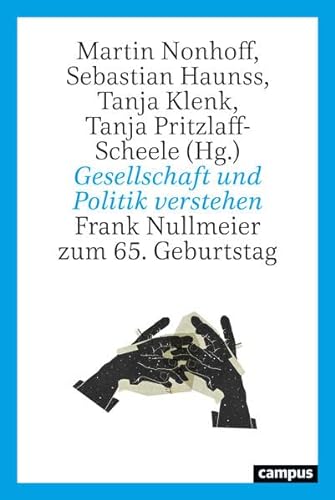 Radikale Demokratietheorie als Gesellschaftstheorie
Radikale Demokratietheorie als Gesellschaftstheorie
-
Philosophische Zeitfragen. Weshalb wir mit Zeit taktvoll umgehen sollten
Zeit spielt eine grundlegende Rolle im menschlichen Leben. Zu bestimmen, was ihr Wesen ausmacht, ist bekanntermassen nicht einfach – und ist vielleicht auch nicht die philosophisch interessanteste Herausforderung. Wichtiger scheint es, verschiedene Lebensbereiche zunächst auf ihre unterschiedlichen Zeitauffassungen hin zu untersuchen und sich zu fragen, wie sie sich aufeinander beziehen. Für unseren Umgang mit Zeit ist das Entscheidende: Wie lassen sich Ereignisse sinn- und taktvoll aufeinander abstimmen?
-
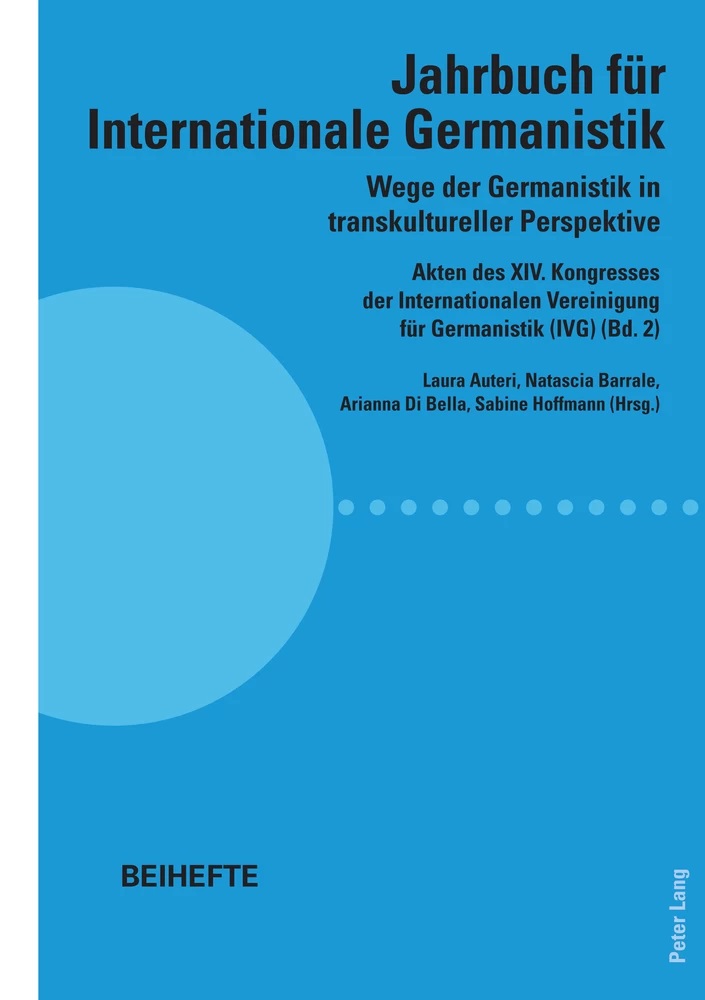 Mimikry der Marginalität
Mimikry der Marginalität
-
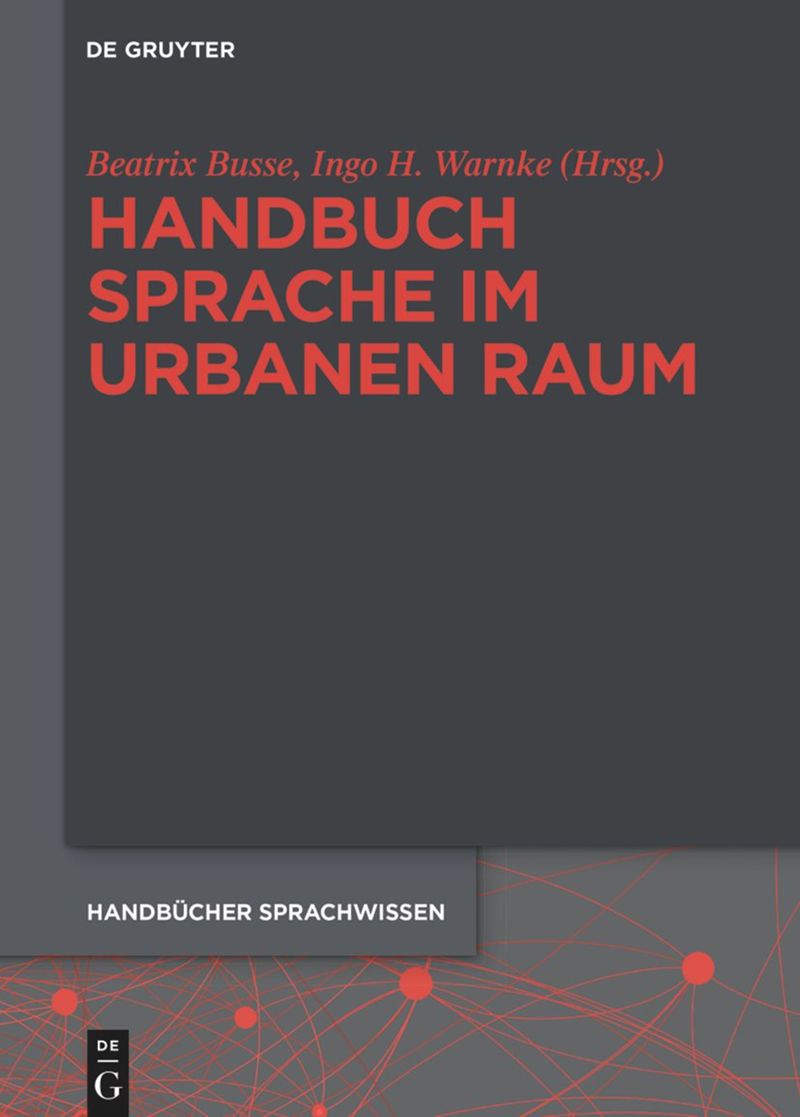 Melancholy Objects Remixed. A Multimodal Counterstatement on Photography in Urban Linguistics
Melancholy Objects Remixed. A Multimodal Counterstatement on Photography in Urban LinguisticsThe chapter discusses the use of photographs in research on Linguistic Landscape. Based on the observation of a widespread use of photographic documentation, the status of photographs is critically reflected. The focus lies on a reading of Susan Sontag’s ([1977] 2014) Melancholy Objects. Here, conceptions of description and documentation are questioned, as they are common for some linguistic works, especially in the field of Urban Studies. Of particular importance is the examination of the tension between realism and surrealism as well as the question of the extraction of reality. The text, which is a remix of Susan Sontag’s ([1977] 2014) thoughts, is complemented by twenty photographs that address the limits of photographic representation in the linguistic text.
© 2022 Walter de Gruyter GmbH, Berlin/Boston
-
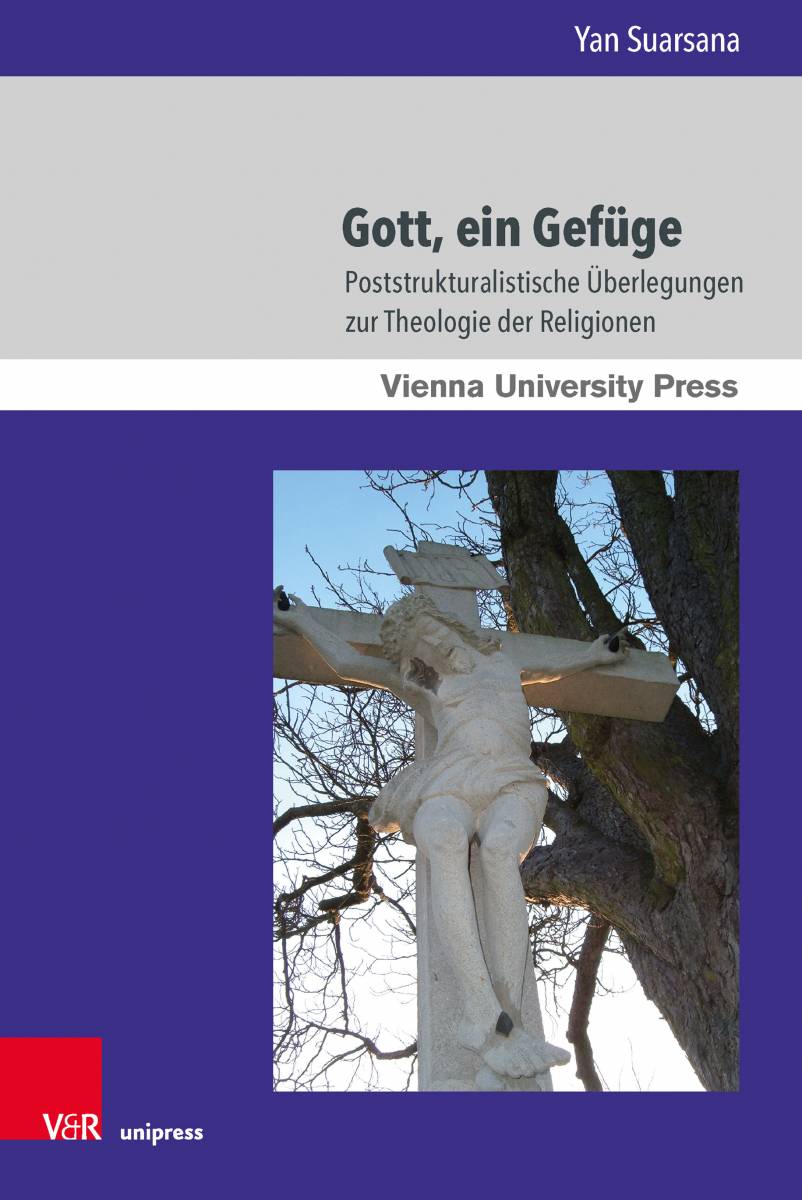 Gott, ein Gefüge. Poststrukturalistische Überlegungen zur Theologie der Religionen
Gott, ein Gefüge. Poststrukturalistische Überlegungen zur Theologie der ReligionenThis book extends the contemporary debate on the global concept of religion, conducted in the context of religious studies, to the field of the theology of religions. In applying poststructuralist and postcolonial perspectives, it seeks to deconstruct central categories such as truth, universality, or religion, in order to contextualize them by making transparent their historical genealogy and entanglement with political, social, and scientific discourses. Further, it aims to outline new areas of thinking, which can serve as the experimental basis of an alternative, non-essentialist form of theology (of religions).
-
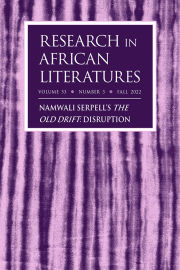 Namwali Serpell’s The Old Drift: Disruption (Special Issue)
Namwali Serpell’s The Old Drift: Disruption (Special Issue)Research in African Literatures, the premier journal of African literary studies worldwide, serves as a stimulating vehicle in English for research on the oral and written literatures of Africa. Reviews of current scholarly books are included in every number, and a forum offers readers the opportunity to respond to issues raised in articles and book reviews.
-
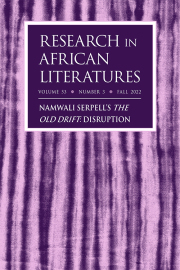 State of the Planet. Homi Bhabha and Namwali Serpell in Conversation
State of the Planet. Homi Bhabha and Namwali Serpell in ConversationAfter explaining the rationale for bringing the author of The Old Drift, Namwali Serpell, and critical theorist Homi Bhabha into conversation, this interview with both of them explores some of the key themes of Serpell’s novel in relation to its wider geopolitical and historical context. Beginning with how we can understand the state of the planet in the present historical moment, the discussion expands to explore the broad context of more themes in the novel, which includes the place of gender and sexual politics, a global pandemic in a time of national and financial closures, cosmopolitanism, the space race and reverberations of the Cold War in the present, and the continued relevance, if any, of postcolonial theory, technology, revolution, and futurity.
-
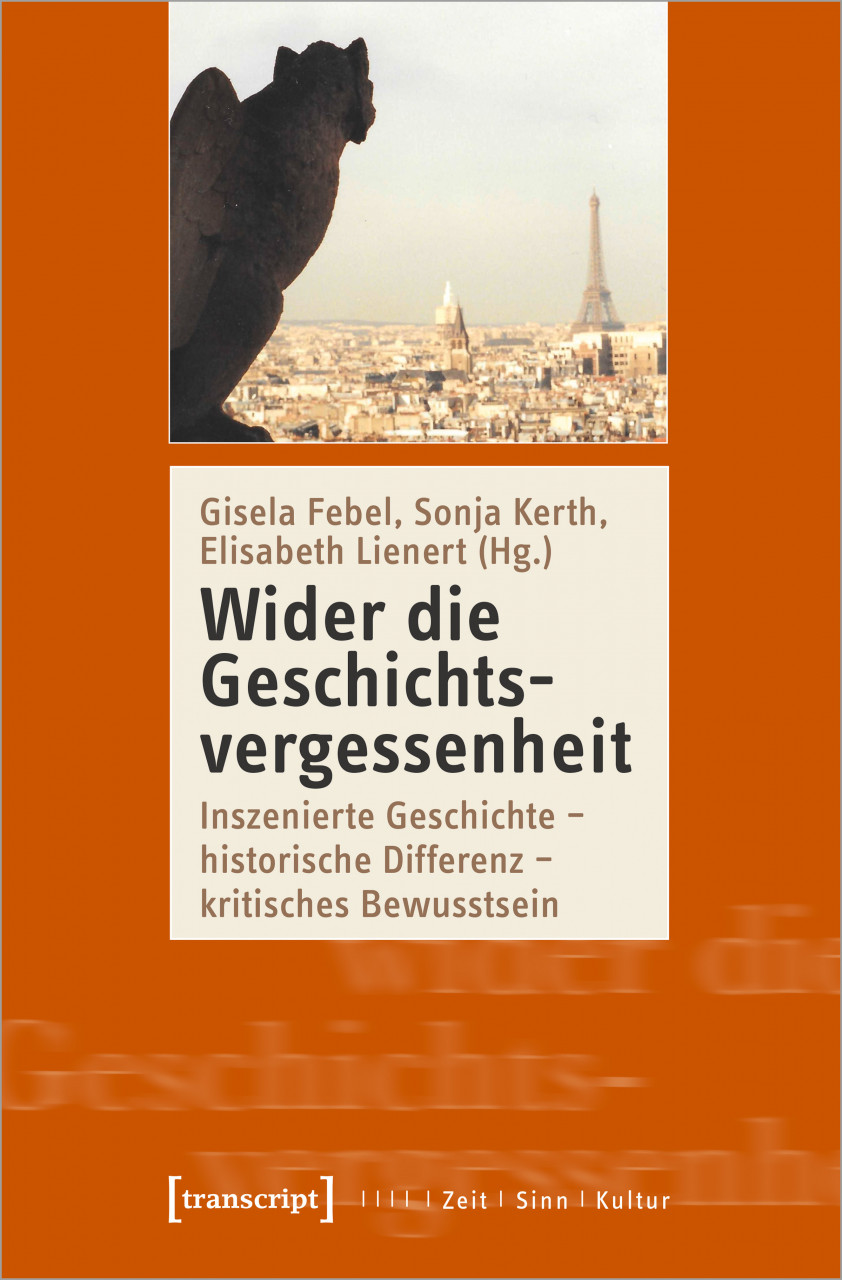 Wider die Geschichtsvergessenheit. Inszenierte Geschichte – historische Differenz – kritisches Bewusstsein
Wider die Geschichtsvergessenheit. Inszenierte Geschichte – historische Differenz – kritisches BewusstseinIn the face of growing populism and right-wing radicalism, the fight against historical forgetfulness in thought and action is once again highly topical. At first glance, however, forgetting history – at least in relation to the pre-modern era – hardly seems to be an issue: The Middle Ages, Renaissance and early modern period are experiencing a boom in novels, dramas and popular media. But here in particular, there is an urgent need for an active response to simplifications, mythifications and falsifications. The contributors to this volume show that it is essential for a critical consciousness to recognize historical difference and media filters and to reflect on their effects.
-
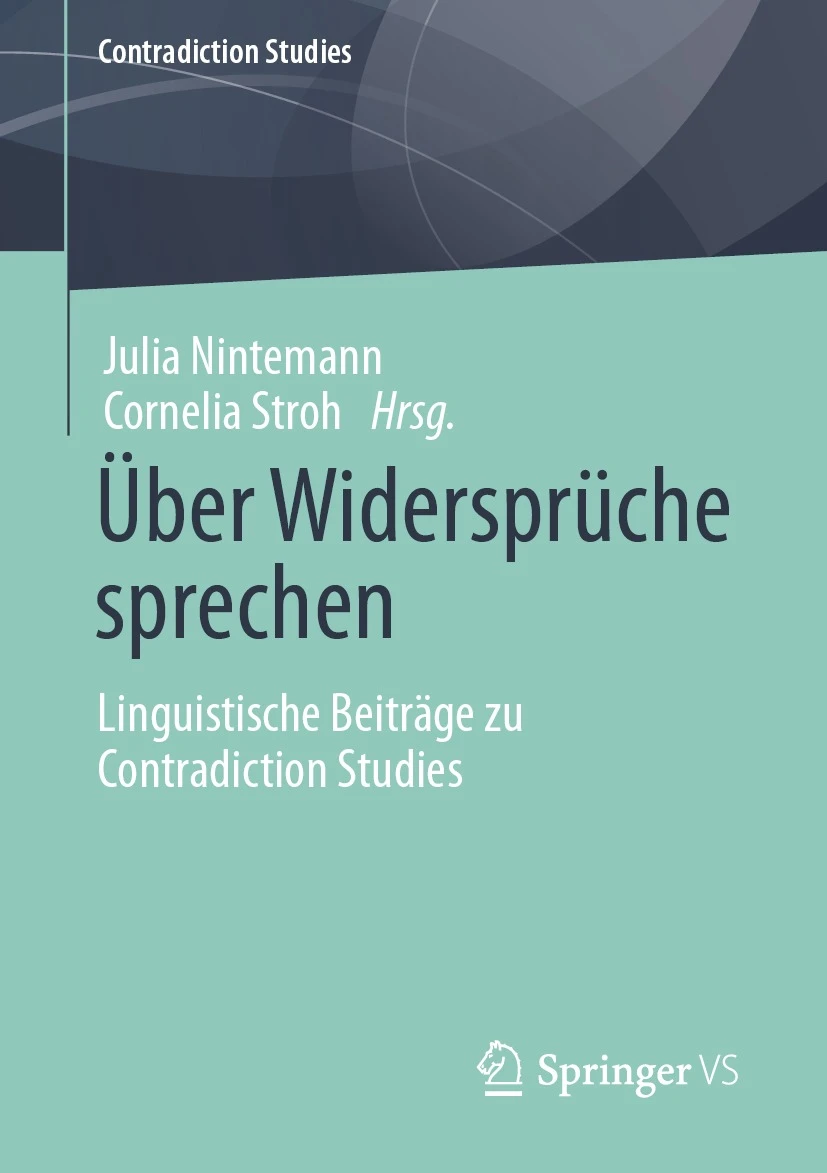 Über Widersprüche sprechen. Linguistische Beiträge zu Contradiction Studies
Über Widersprüche sprechen. Linguistische Beiträge zu Contradiction StudiesDer Fokus des Bandes liegt auf Widerspruch als Gegenstandsbereich, unter den sprachliche Ausdrucksformen von Entgegensetzung, Paradoxie, Lüge und Einspruch ebenso fallen wie linguistische Methoden des Umgangs mit Widerspruch und Widersprüchlichkeiten in der sprachwissenschaftlichen Disziplinengeschichte. Dabei stellt sich die Linguistik nicht als homogene, sondern vielmehr als eine heterogene, vielseitige Disziplin dar, die es erlaubt, den Forschungsgegenstand aus verschiedenen Blickwinkeln zu betrachten; die Beitragenden präsentieren insofern verschiedene innerdisziplinäre Schwerpunkte von linguistischer Widerspruchsanalyse, darunter der Blick auf Sprachhandlungen zum Ausdruck von Widerspruch in wissenschaftlichen, historischen, (post)kolonialen, narrativen oder alltäglichen Diskursen. Es werden einzelsprachliche Untersuchungen nicht nur europäischer Sprachen vorgenommen, sondern auch die crosslinguistische Vielfalt von widerspruchsindizierenden Konstruktionen betrachtet.
-
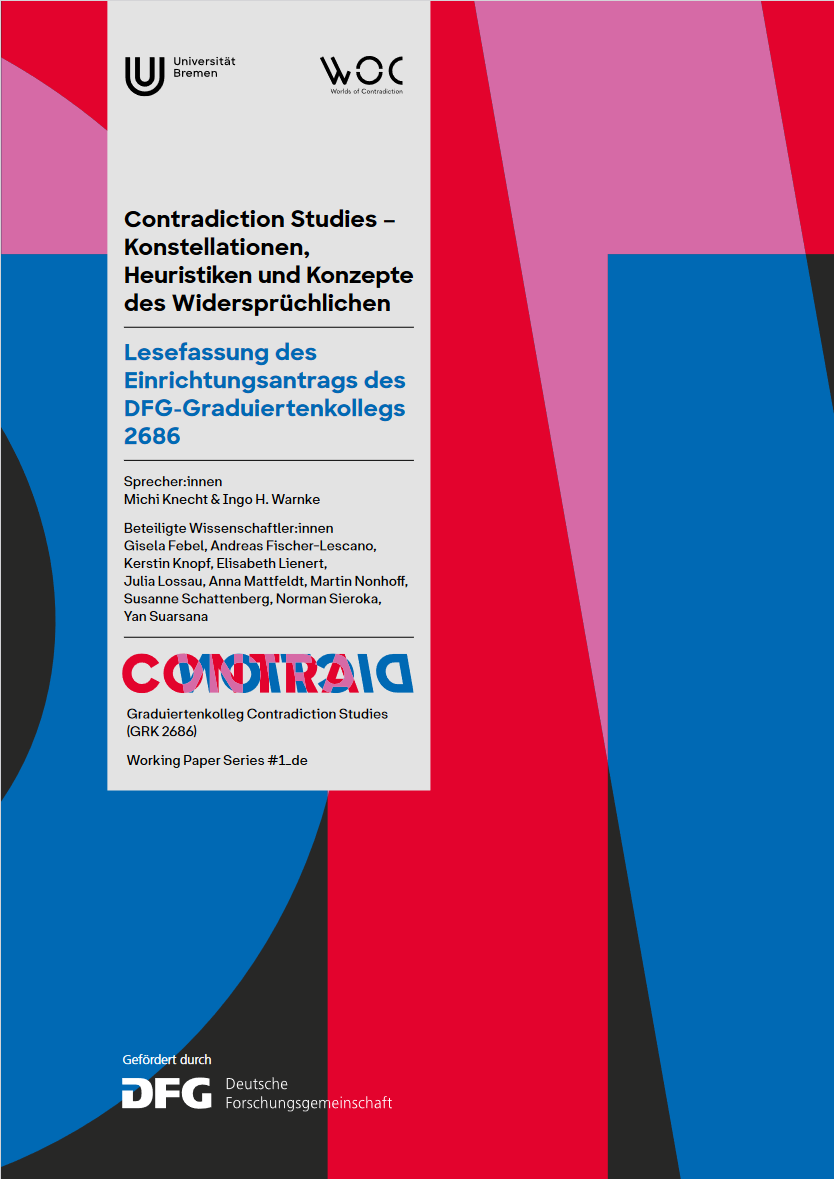 Working Paper “Einrichtungsantrag Contradiction Studies – Konstellationen, Heuristiken und Konzepte des Widersprüchlichen, Lesefassung”
Working Paper “Einrichtungsantrag Contradiction Studies – Konstellationen, Heuristiken und Konzepte des Widersprüchlichen, Lesefassung”The Research Training Group 2686 Contradiction Studies researches the formation, negotiation and explanatory limits of contradiction.
The point of departure is the assumption that the ordering figure of contradiction with the imperative to resolve contradictions is often in tension with everyday experiences of contradictions in living together. Constellations of contradiction, contradiction avoidance, contradictions and practices of contradiction are therefore systematically researched and established as objects of investigation in the humanities, social sciences and law. The research group combines discourse-, narrative- and text-centred approaches with ethnographic and other qualitative-empirical methods. On the basis of case studies and genealogically or analytically orientated projects, the Centre carries out conceptual and theoretical work. This aims to re-evaluate contradiction, contradictions and contestation in their empirical constellations, heuristic functions and ontological dimensions – also in response to post- and decolonial discussions on the cosmopolitanisation of knowledge production.